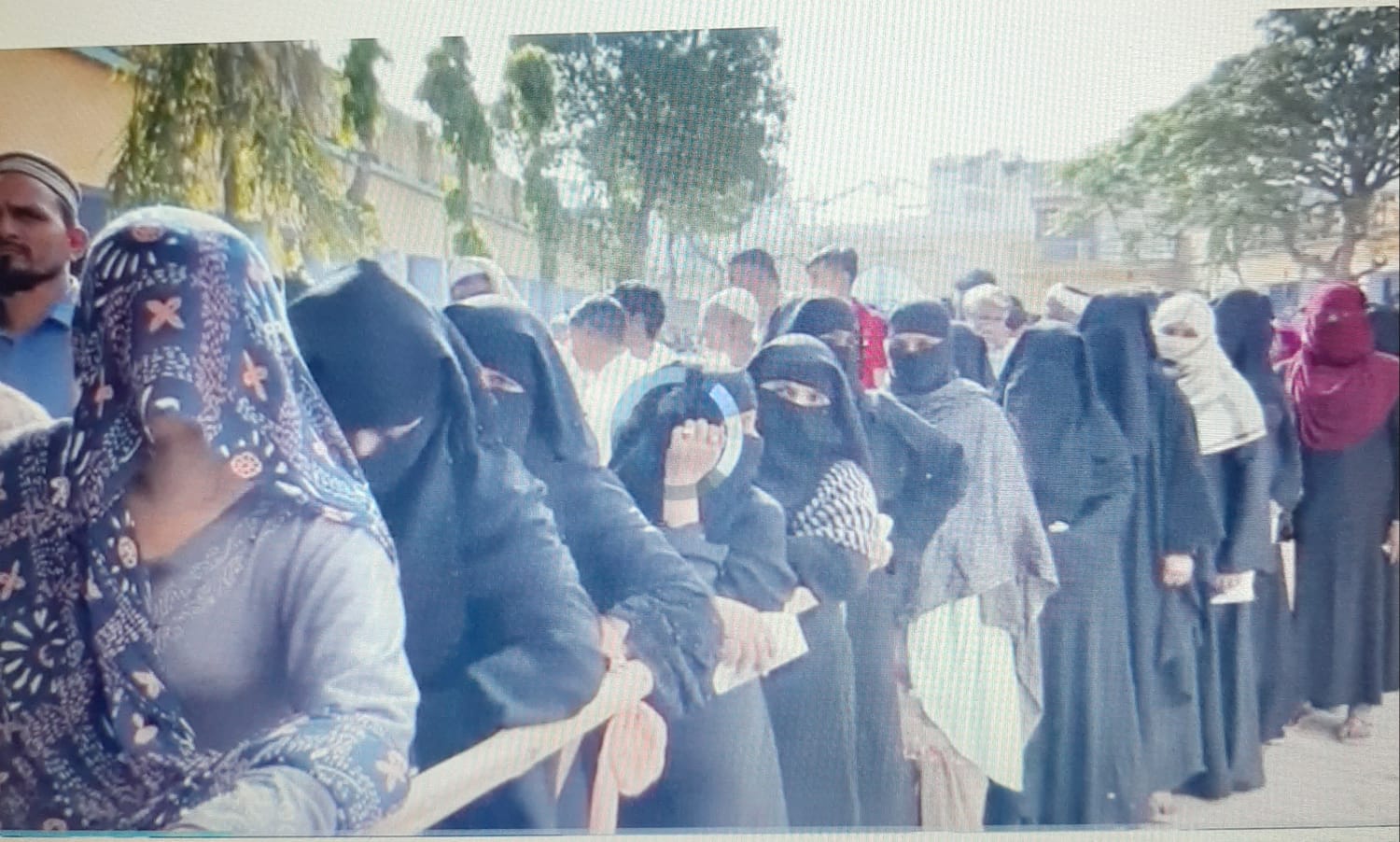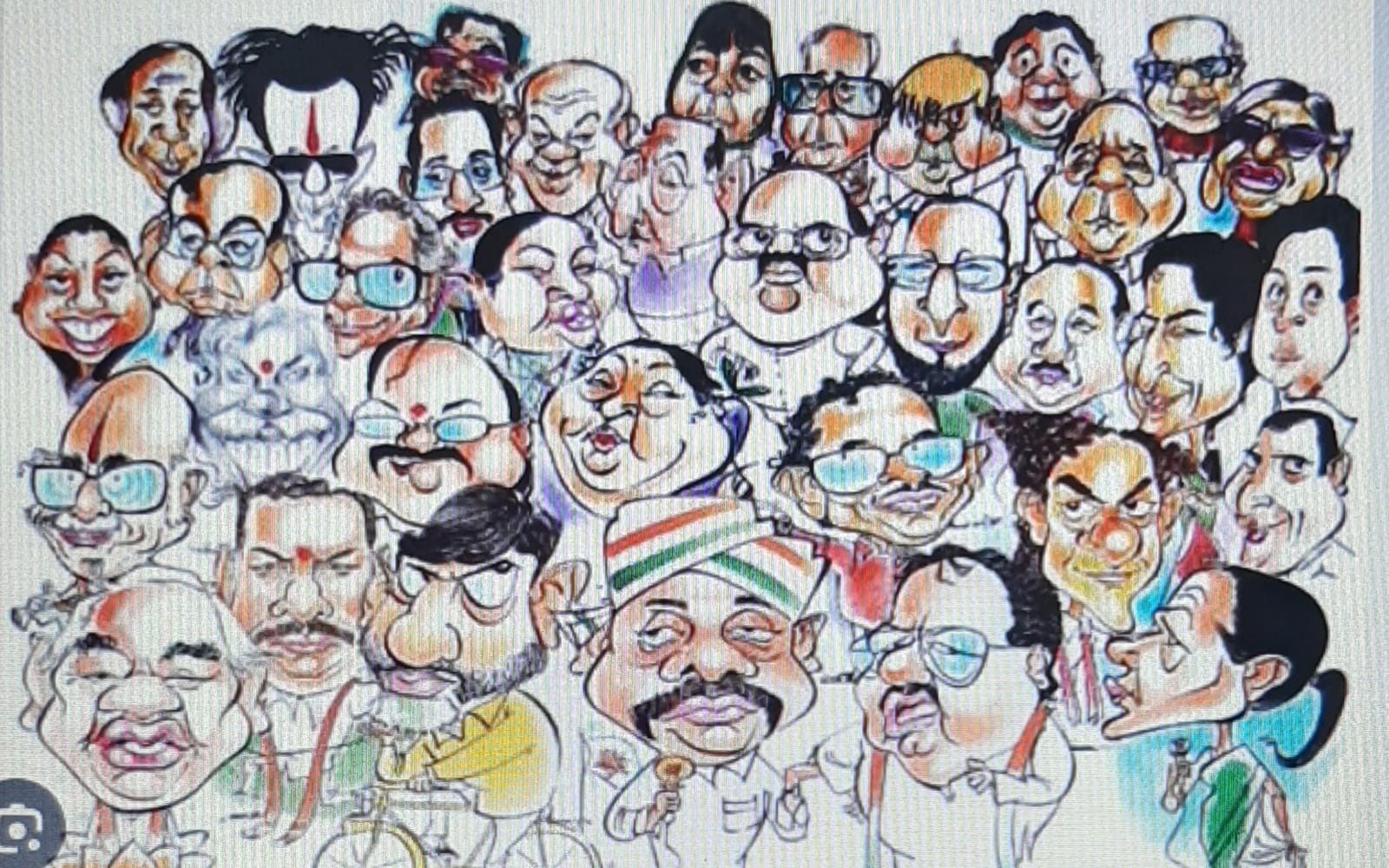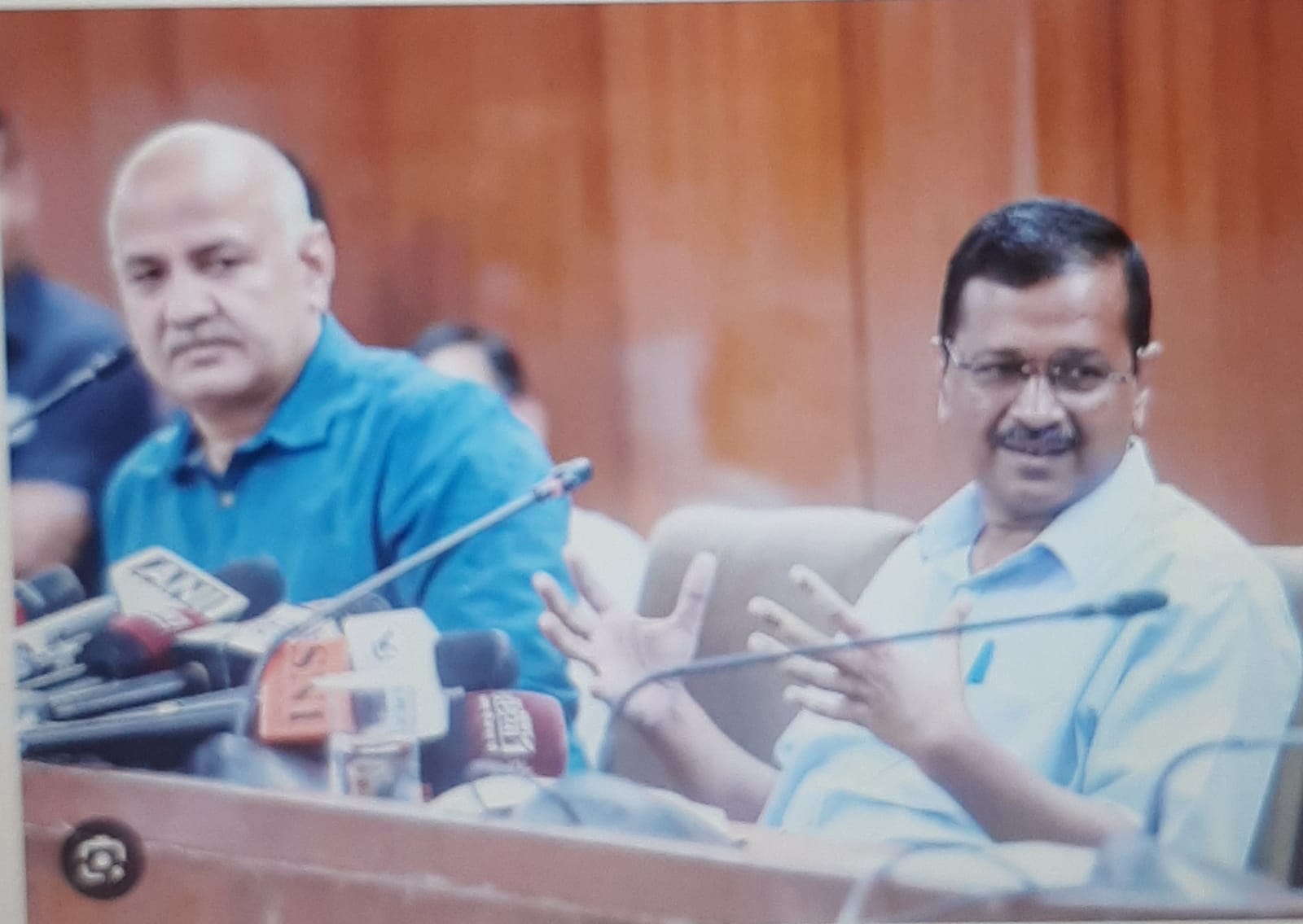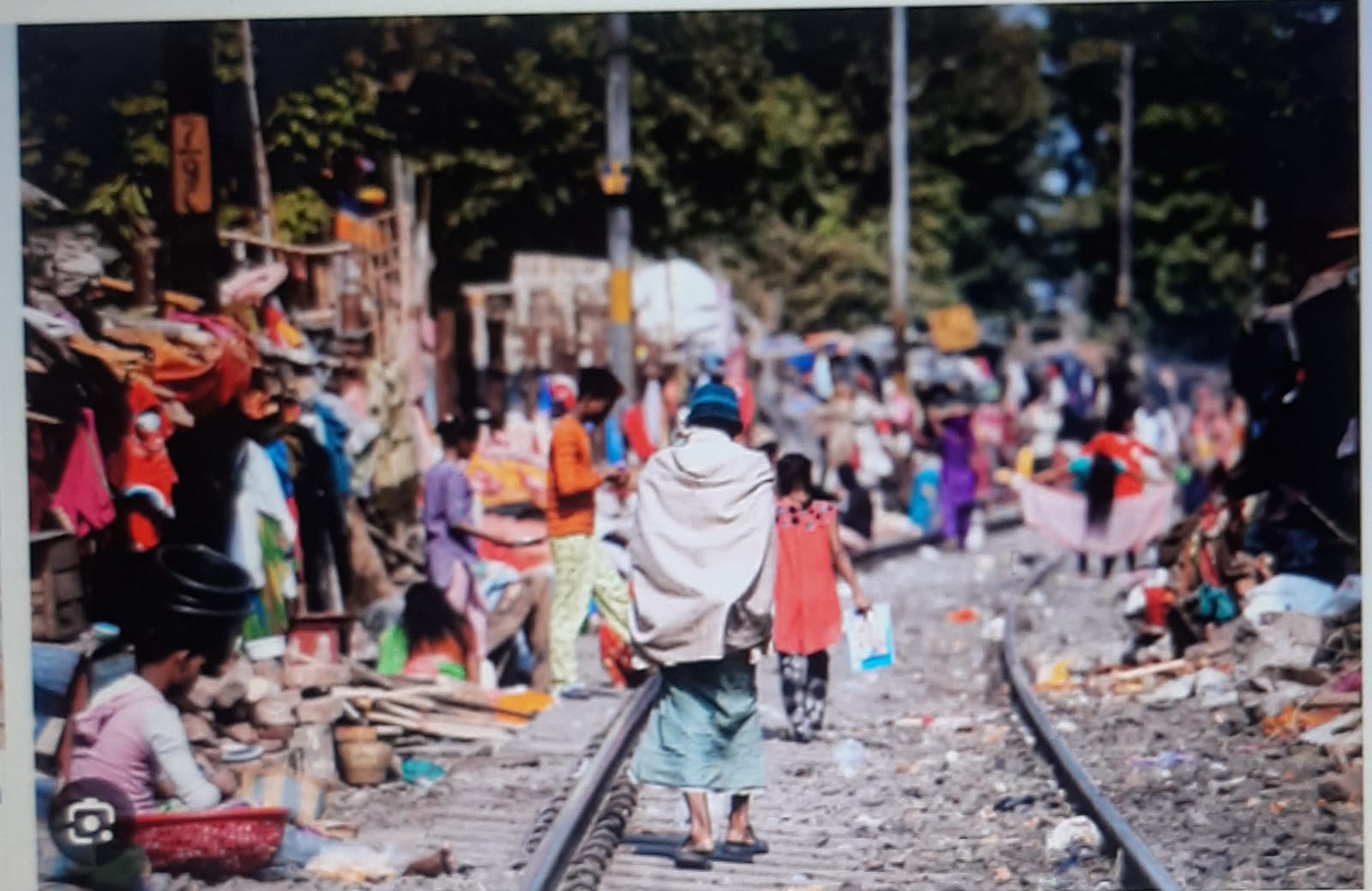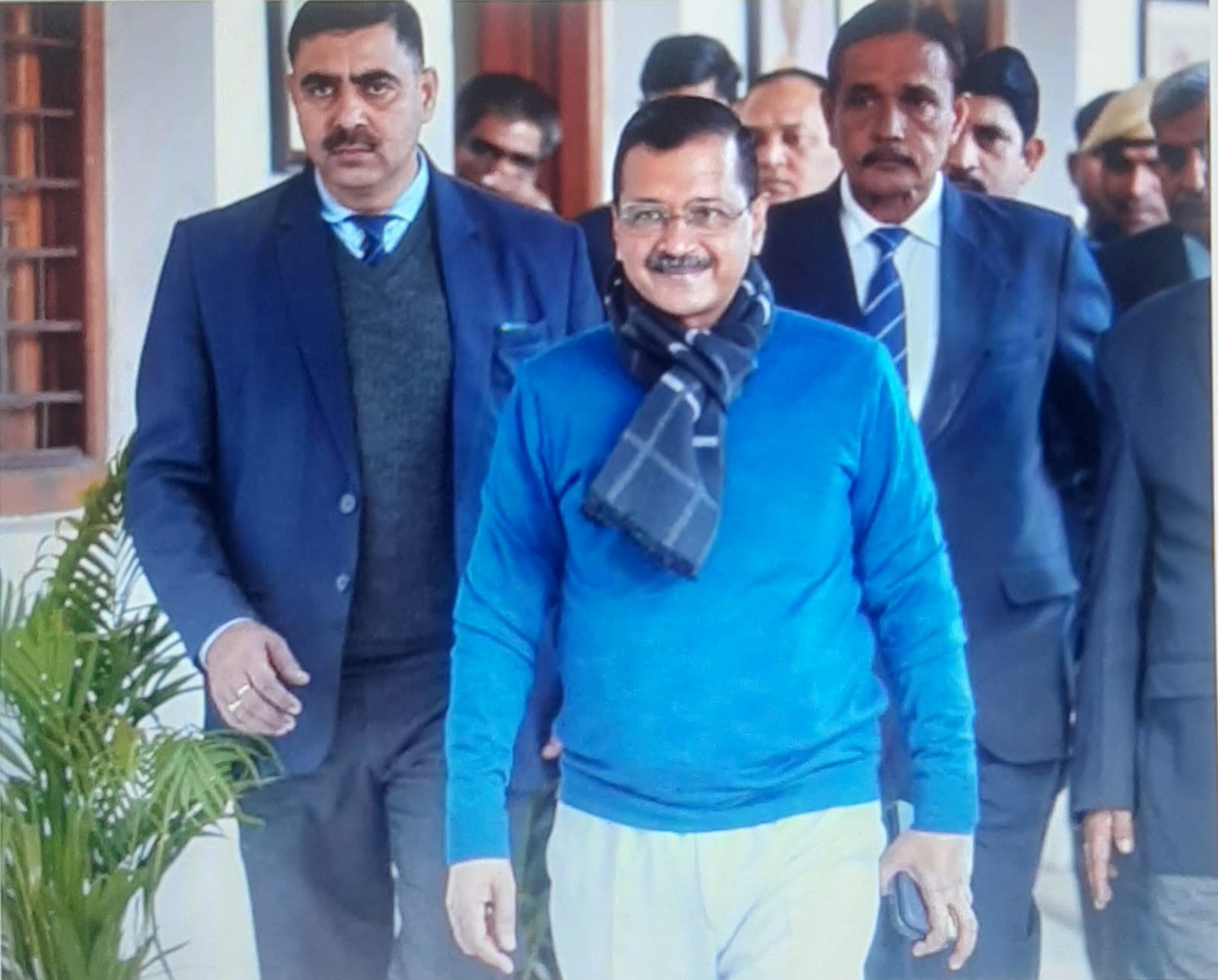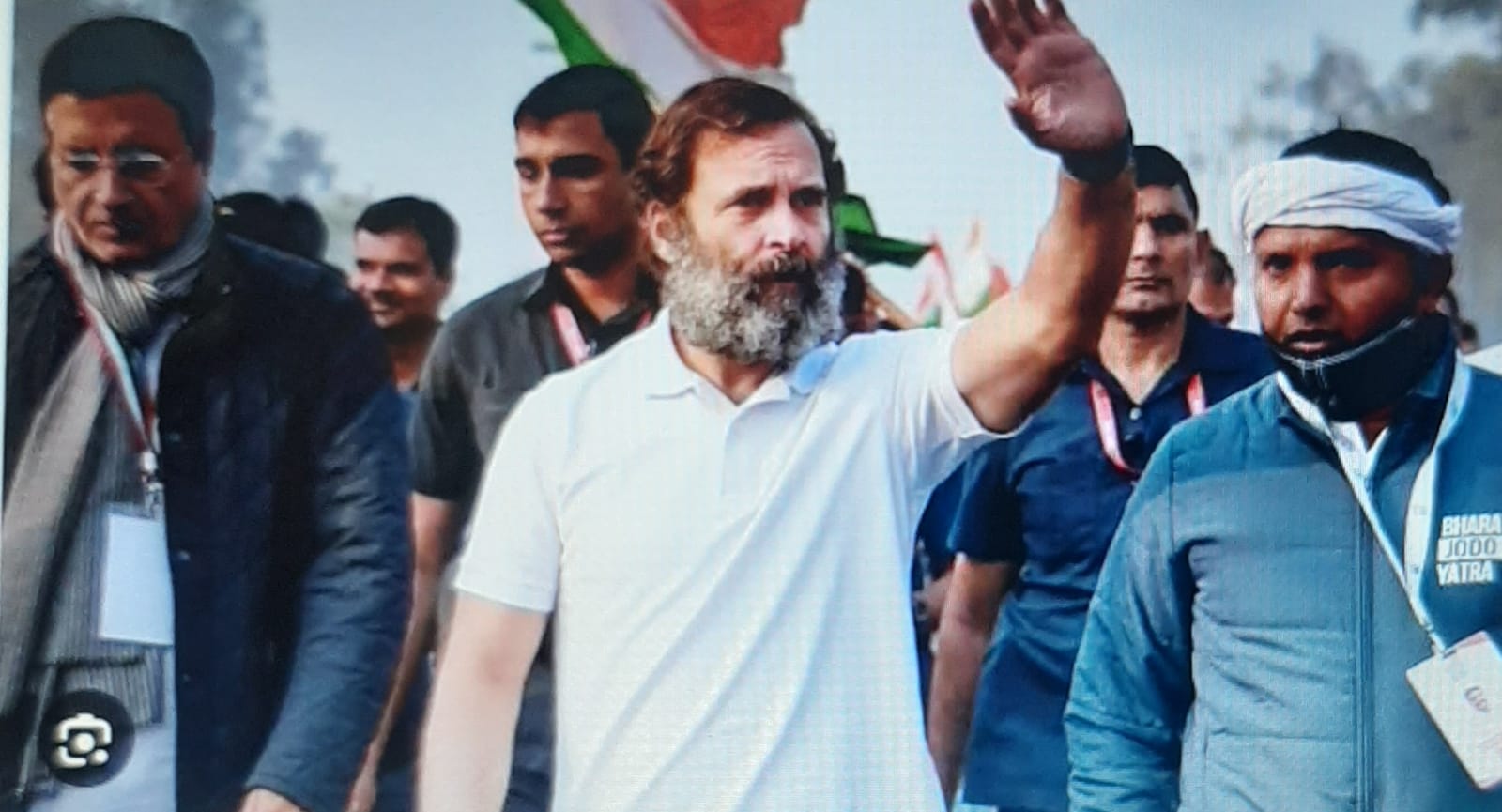
In the volatile and vicious environment that prevails, hate speech and a polarised discourse has gained humungous popularity. TRPs rule the roost and journalists are coerced into propagating agendas. Truth is a constant casualty, writes former IAS officer V S Pandey
Today media, across the globe, is facing a crisis of confidence. The dominant role of big money in media, even in liberal democracies, is too apparent to be ignored any longer and clearly the writ of market forces rules unchallenged. Consequently, especially in India, the “advertorial” and “features” have almost replaced editorials. Another unfortunate development is that the media has begun projecting actors, socialites, celebrities and models as the icons of our society eschewing nobler persona. During the current outcry against the so called “godi media,” we need to self correct and follow the Gandhian way of practicing journalism ethically and impactfully .
Undoubtedly Gandhiji was one of the greatest journalists of all time, and the numerous weeklies he published and edited himself can be rated as the most profound ones- which influenced and activated millions and lead to ending of the omnipotent colonial rule. Interestingly, Gandhiji never published any advertisement ever but still ensured that his newspapers were never in the red. All his newspapers enjoyed wide circulation and their authenticity ensured that he could carry on publishing his newspapers uninterrupted for years.
In Gandhiji’s view, the main objectives of a newspaper has to be to not only understand the popular feeling but to give full expression to it, convey to people desirable sentiments, and simultaneously to expose popular defects without any fear or favour. His approach to journalism was totally devoid of ambitions. According to Gandhiji journalism cannot be treated as a vocation to earn ones livelihood because this is a sacred vocation to serve the people only. In ‘Young India’ of 2nd July 1925, he wrote: “I have taken up journalism not for its sake but merely as an aid to what I have conceived to be my mission in life. My mission is to teach by example and present under severe restraint the use of the matchless weapon of satyagraha which is a direct corollary of nonviolence.”
In his autobiography, he further elucidated, “The sole aim of journalism should be service. The newspaper is a great power, but just as an unchained torrent of water submerges the whole countryside and devastates crops, even so an uncontrolled pen serves but to destroy. If the control is from without, it proves more poisonous than want of control. It can be profitable only when exercised from within. If this line of reasoning is correct, how many journals of the world would stand the test? But who would stop those that are useless? and who should be the judge? The useful and the useless must, like good and evil go on together, and man must make his choice.”
The Mahatma was clear about the true role of newspapers. He wrote “In my humble opinion, it is wrong to use a newspaper as a means of earning a living. There are certain spheres of work which are of such consequence and have such bearing on public welfare that to undertake them for earning one’s livelihood will defeat the primary aim behind them. When, further a newspaper is treated as a means of making profits, the result is likely to be serious malpractices. It is not necessary to prove to those who have some experience of journalism that such malpractices do prevail on a large scale. He was of the opinion, ‘Newspapers are meant primarily to educate the people. They make the latter familiar with contemporary history. This is a work of no mean responsibility. It is a fact, however, that readers cannot always trust newspapers. Often facts are found to be quite the opposite of what has been reported. If newspapers realized that it was their duty to educate the people, they could not but wait to check a report before publishing it. It is true that often they have to work under difficult conditions. They have to sift the true from the false in a short time and can only guess at the truth. Even then, I am of the opinion that it is better not to publish a report at all if it has not been found possible to verify it.’
In ‘Young India’ Gandhi gave a very clear idea of the standards he had set up for himself as a journalist “To be true to my faith, I may not write in anger or malice. I may not write idly. I may not write merely to excite passion. The reader can have no idea of the restraint I have to exercise from week to week in the choice of topics and my vocabulary. It is training for me. It enables me to peek into myself and to make discoveries of my weaknesses. Often my vanity dictates a smart expression or my anger a harsh adjective. It is a terrible ordeal but a fine exercise to remove these weeds.”
In the volatile and vicious environment that prevails, hate speech and a polarised discourse has gained humungous popularity. TRPs rule the roost and journalists are coerced into propagating agendas. Truth is a constant casualty. When saner voices persist in talking to power, suppression follows swiftly. We must heed Thomas Jefferson, the former US President ,-“Our liberty depends on the freedom of the press, and that cannot be limited without being lost.” He also wrote, “Our first object should therefore be to leave open to him all the avenues to truth. The most effectual hitherto found is the freedom of the press.”
Our journalist brethren need to introspect deeply and do much needed course correction. Newspapers and the digital media need to realize their vital role in a democracy like ours, and stop callously treating media as a milch cow and heed the valuable advice given by the father of our nation. It is exigent that they rediscover their noble role and regain their lost credibility. They will serve the nation and its people best by fearlessly speaking truth to the powers that be. Denying the truth and propagation of falsehood is being done at our own peril. The wages of cowardice are temporarily rewarding but devastating permanently.
(Vijay Shankar Pandey is former Secretary Government of India)


